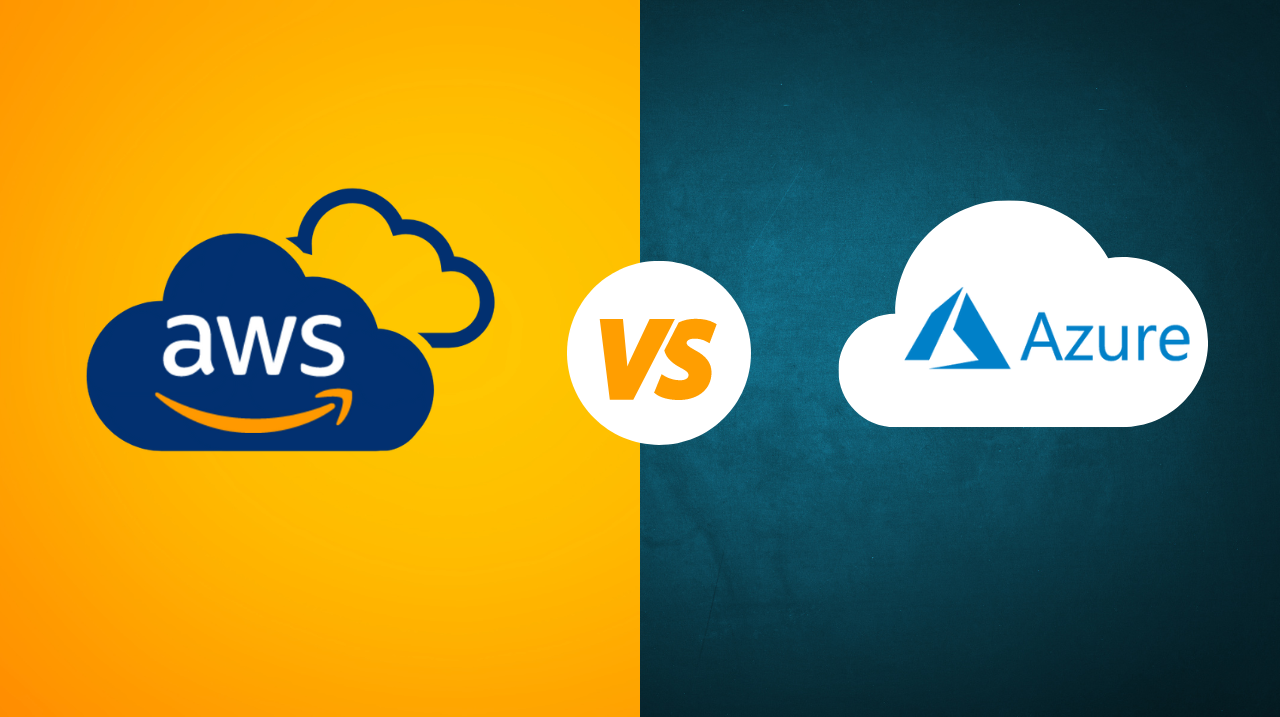AZURE VS AWS
Microsoft
Azure also known as Azure, is a comprehensive cloud platform with over two hundred
products and other related cloud services. The platform offers various services, including
analytics, computers, storage, and networking, among others. Its integration with
Microsoft's ecosystem makes it a popular choice for businesses already using Microsoft products.
The cloud computing pioneer, AWS or Amazon Web Services, offers more than 200 services
from its data centres around the globe, including computing power, storage options, and
networks, with millions of users ranging from start ups to large business entities and
government agencies.
CORE DIFFERENCES - BENEFITS AND SERVICES
| CATEGORY |
AZURE |
AWS |
| Pricing Models |
Pay-as-you-go model; billed per minute. Price options include Reserved VM Instances, Hybrid Benefits and Spot VMs. |
Pay-as-you-go model; billed per hour. Offers a variety of methods, such as Reserved Instances, Savings Plans, and Spot Instances. |
| Market Share |
Holds 25% of cloud market share |
Holds 31% of cloud market share |
| Storage |
Provides Blob Storage for objects, Azure Files for managed file sharing, and Azure Disc Storage for high-performance block storage |
Offers storage alternatives such as S3 (Simple Storage Service) for object storage, EBS (Elastic Block Store) for block storage, and Glacier for archive storage |
| Privacy and Security |
Has solid compliance certifications and security features such as Active Directory connections and Cloud Defender (AI-powered tool) |
Enhances privacy with IAM (Identity and Access Management) and AWS Shield for DDoS prevention |
| Multi-Cloud Solutions |
Azure Stack; allows enterprises to operate Azure services on-premises and in the cloud simultaneously |
Outposts; extends AWS infrastructure to on-premises sites |
| Database |
Offers Azure SQL Database, Cosmos DB (NoSQL), Azure Synapse Analytics, and Cortana Intelligence |
RDS (supports six mainstream database engines), DynamoDB (NoSQL), and Redshift (data warehousing) |
| Ease of Use |
Integrated environment for managing accounts and organising resources. Its documentation, on the other hand, though expansive, may sometimes lack intuitiveness and ease of navigation. |
A feature-rich interface that can be fully customised and is supplemented with extensive, organised documentation. |
WHICH ONE IS BEST FOR YOU?
Before choosing
a cloud computing service provider, there are various factors to consider, as
they can significantly impact your business operations. Here are a few important ones:
1. Requirements
Before choosing
between Azure and AWS, assess your needs. Azure is better for hybrid cloud
solutions, corporate apps, and DevOps, especially if the organisation heavily uses Microsoft
technologies. AWS excels in high-performance, data-intensive, and open-source applications.
2. Existing Infrastructure
If your business
uses Microsoft products like Windows Server, SQL Server, SharePoint, or
Active Directory, Azure would be a better choice because of its unified management and cost
savings. Azure's integration with the Microsoft ecosystem enhances operational efficiencies.
AWS supports Windows workloads and Microsoft applications but excels in environments with a
mix of technologies.
3. Platform Proficiency
If your team is more
familiar with the Microsoft environment, Azure becomes easier to use due
to its common interfaces and integration with technologies like Visual Studio, PowerShell, and
Active Directory. AWS, on the other hand, offers quick proficiency with its widespread use of
open-source technologies and customisable service options, catering to startups and global
enterprises alike.
4. IT Requirements
It is important to
evaluate how effectively each platform suits to your IT needs in areas like AI,
big data analytics and storage space. For example, AWS uses SageMaker for artificial
intelligence and machine learning, while Azure uses Azure Machine Learning and Cognitive
Services. Such services as Redshift, EMR, or QuickSight are provided by AWS for data
analytics, while Synapse Analytics, HDInsight, or Power BI are the choices you have for Azure.
CONCLUSION
Comparing Azure versus AWS can be a complex choice, but knowing the basics about them
can go a long way in guiding you to making an informed choice. MORESCO acknowledges that
every company has its own peculiarities and aspirations. Our team of experts has hands-on
experience with these two platforms; therefore, we are able to deliver tailored cloud solutions
that are specifically designed for your enterprise.
Contact MORESCO today and find out how we could help you along your journey to the cloud.
Allow us to support you as you leverage the power of the cloud to drive innovation and achieve
business goals.


